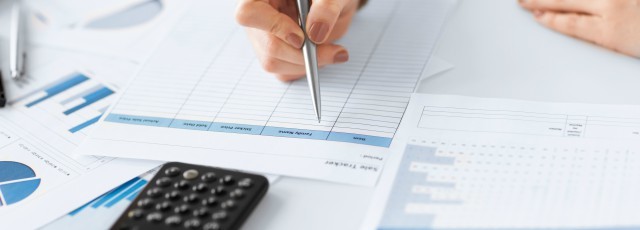Accounts Receivable Clerk job description
An Accounts Receivable Clerk prepares accounts receivable transactions and processes customer payments. They also create invoices according to company practices and submit them for approval by management or clients.
This Accounts Receivable Clerk job description template is optimized for posting on online job boards or careers pages. It is easy to customize this accounts receivable job description for your company. Similar job titles include Accounts Receivable Specialist, Associate and Clerk.
Accounts Receivable Clerk responsibilities include:
-
Processing accounting receivables and incoming payments in compliance with financial policies and procedures
-
Performing day to day financial transactions, including verifying, classifying, computing, posting and recording accounts receivables’ data
-
Preparing bills receivable, invoices and bank deposits

Job brief
We are looking for a skilled Accounts Receivable Clerk to provide financial, administrative and clerical services.
Accounts receivable duties include ensuring accuracy and efficiency of operations, processing and monitoring incoming payments, and securing revenue by verifying and posting receipts.
Responsibilities
-
Process accounts and incoming payments in compliance with financial policies and procedures
-
Perform day to day financial transactions, including verifying, classifying, computing, posting and recording accounts receivables’ data
-
Prepare bills, invoices and bank deposits
-
Reconcile the accounts receivable ledger to ensure that all payments are accounted for and properly posted.
-
Verify discrepancies by and resolve clients’ billing issues
-
Facilitate payment of invoices due by sending bill reminders and contacting clients
-
Generate financial statements and reports detailing accounts receivable status
Requirements and skills
- Proven working experience as Accounts Receivable Clerk, Accounts Receivable Manager or accountant
- Solid understanding of basic accounting principles, fair credit practices and collection regulations
- Proven ability to calculate, post and manage accounting figures and financial records
- Data entry skills along with a knack for numbers
- Hands-on experience in operating spreadsheets and accounting software (JDE or other full-scale ER software)
- Proficiency in English and in MS Office
- Customer service orientation and negotiation skills
- High degree of accuracy and attention to detail
- BS degree in Finance, Accounting or Business Administration
Frequently asked questions
- What does an Accounts Receivable Clerk do?
- Accounts Receivable Clerks manage and maintain customer accounts, making sure the money customers owe isn't past due.
- What are the duties and responsibilities of an Accounts Receivable Clerk?
- Accounts Receivable Clerks correctly bill clients for goods or services. They work with other departments to verify and record transactions and resolve account discrepancies. They also collect the correct amounts from their customers on time by providing the necessary support throughout those processes.
- What makes a good Accounts Receivable Clerk?
- To be a successful Accounts Receivable Clerk, you need excellent research and record-keeping skills. You also should possess superior communication abilities and strong math or computer knowledge so that your work is accurate and timely.
- Who does an Accounts Receivable Clerk work with?
- Typically, an Accounts Receivable Clerk works directly with customers to help them make the proper payments for goods and services. An Accounts Receivable Clerk reports to the Accounting and Administrative Manager to ensure customers make their payments on time.
